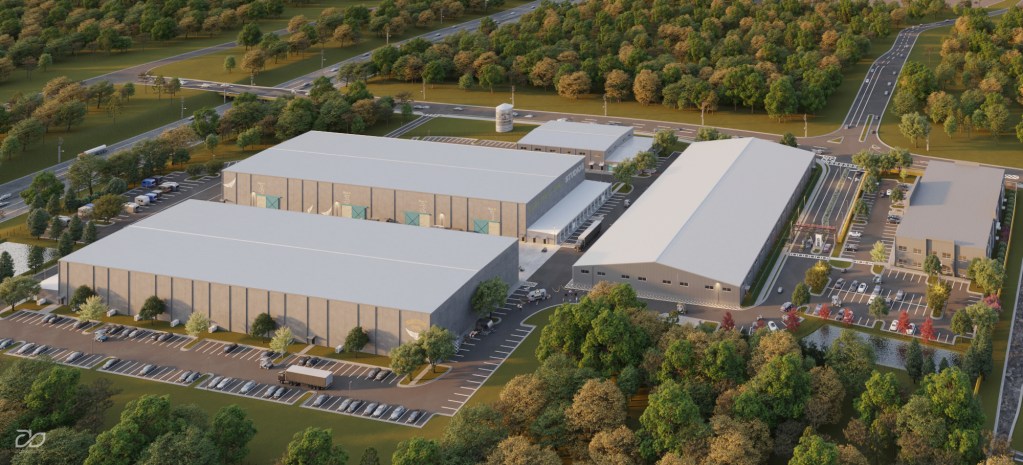
Electric Owl Studios, a film and television studio built with a sustainable approach, is expected to open in DeKalb County later this year.
Electric Owl Studios, which is located at 3963 Redan Road, is billed as the world’s first LEED-certified film studio. LEED – or Leadership in Energy and Environmental Design – is a globally recognizing rating system for sustainability. According to the U.S. Green Building Council, LEED-certified buildings save money, improve efficiency, and lower carbon emissions. The studio is equipped with six sound stages spanning roughly 140,000 square feet.
“The idea for Electric Owl really arose around being the first Gold LEED-certified film studio in the world, which we now will be the first one in operation built from the ground up,” said co-founder Michael Hahn. “Really, that’s what spurred our idea and what we thought was a differentiator for this brand – to be sustainable, to think about sustainability from inception.”
The studio was founded by Hahn and Dan Rosenfelt, and is slated to open sometime around late May or early June. Hahn, who is the CEO of Capstone South Properties and former owner of Doraville’s Third Rail Studios, and Rosenfelt, the former president of Third Rail, had the idea to form Electric Owl right around the time that studio was sold to Gray Television in 2021.
“We had such a great working relationship at Third Rail,” Hahn said of working with Rosenfelt. “We started thinking about either expanding Third Rail or creating our own brand – really, more creating our own brand – right as we were selling Third Rail.”
According to Hahn, Electric Owl will operate with solar power, and 30% of its energy will come from renewable resources. Recycled metals have been used throughout the studio’s different buildings. Roughly 15% of parkings spots will have electric vehicle chargers, and the studio is within walking distance to the Indian Creek MARTA Station.
Hahn said any productions that come through the studio will be given a manual for green operations, filling in the crew on the studio’s recycling procedures and other sustainable programs in use. Productions will also be encouraged to use LED lighting, which uses less energy than other types of lights.
Hahn said he doesn’t foresee too much pushback from productions that come into Electric Owl.
“We feel like there’s going to be pretty good cooperation on all of these ideas,” he said. “I’m sure we’ll learn some things from them also along the way that we then make part of our plan going forward.”
In addition to sustainability, Hahn said that he and Rosenfelt hope Electric Owl can be net positive for the Atlanta community. The hope is that the location of the studio is convenient for film workers, and Electric Owl is also planning on hosting a robust internship program for both high school and college students.
“We’re going to be creating a place that houses a lot of jobs,” Hahn said. “One of the reasons we located it in the neighborhood we did is because a lot of the film workers tend to live in East Atlanta, Decatur, those types of places. So we feel like it’s in the film community for the workforce.”
Hahn would not disclose if Electric Owl has any filming productions lined up already, but he said the future is looking bright.
“The demand is still pretty robust. We’re in talks with six or seven productions,” he said. “We may land one of those or something else, but we expect to be full pretty quickly.”
